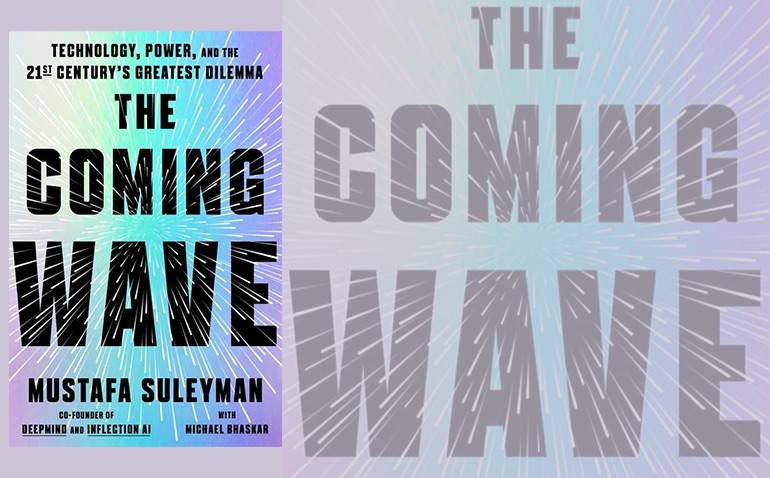
BPF Book Review of “The Coming Wave” by Mustafa Suleman
Book Review of “The Coming Wave – Technology, Power, and the 21st Century’s Greatest Dilemma” by Mustafa Suleman
Artificial Intelligence (AI) is all the rage on Wall Street today. It is the “next big thing” and the world’s biggest companies are investing hundreds of billions of dollars to make sure they don’t miss out. The surge of market value in seven key AI related stocks, often referred to as the “Magnificent Seven” or Mag 7, is breathtaking. At their summer peak the Mag 7 accounted for 30% of the market value of the entire S&P 500 Index. That is an extreme level of concentration rarely seen for the primary stock index representing America’s economy.
So where can one turn to better understand AI and how it might reorder America’s economy?
A useful primer that makes the bull case for AI and provides good historical context is The Coming Wave – Technology, Power and the 21st Century’s Greatest Dilemma by Mustafa Suleyman with Michael Bhaskar. The book’s lead author, Mustafa Suleyman certainly has the creds to opine on this cutting-edge area of software, chips and algorithms. In 2010, he co-founded DeepMind, a company focused on replicating human intelligence, which is central to the burgeoning field of AI. In 2014, Google purchased DeepMind for an estimated $400 million. In 2024, Suleyman left Google and joined Microsoft as the CEO of its new Consumer AI unit, Microsoft AI.
Waves is an excellent metaphor for how new general-purpose technologies can disrupt and overthrow old economic systems. Per the book’s glossary; “Waves: The global diffusion or proliferation of a generation of technology anchored in a new general-purpose technology.” In the 19th century the steam engine, railroad, telephone, Periodic Table of Elements and electricity wrought forth the Industrial Revolution and transformed America’s economy in ways no one could have imagined.
In the 20th century general-purpose technology waves kept coming: personal mobility in the form of the automobile, radio, TV, the airplane followed by the transistor, computing, software and the Internet. The tools for computing and communication brought us the Information Age accompanied by vast new wealth and increasing standards of living.
You can’t blame Wall Street in its enthusiastic quest for the next big thing. But not everything new thing qualifies as a wave. For instance, despite all the hoopla, the EV is not really a new wave but more a new fuel source for the century old automobile.
The book’s discussion on “The Next Energy Transition” begins with the formula (Life + Intelligence) X Energy = Modern Civilization. A simple and very profound proposition. The book rightly credits fossil fuels for their critical role in the economic booms of the 19th and 20th centuries. But it goes on to make a wildly crazy claim that “Renewable energy will become the largest single source of electricity generation by 2027.” That’s implausible and practically speaking, impossible. Even the pro-renewable U.S. Energy Information Agency (EIA) expects renewables to reach only 42% of electricity generation by 2050. The author also makes a misleading claim that solar watt prices are falling. The price of a watt coming out of the back of a solar panel may have fallen over the past twenty years but civilization wants electricity on demand and everywhere solar is deployed in scale, the price of electricity bills go up not down. Why? Because civilization expects on demand electricity and both solar and wind are intermittent requiring additional-backup investment to provide “on-demand electricity.”
But that is just a few pages in a book that has lots of good in-depth information about how the combination of amazing advances in computing, communication and algorithms will impact our world in the decades ahead for both good and potentially bad. The ‘Dilemma’ from the glossary: “The growing likelihood that both new technologies and even their absence might lead to catastrophic and/or dystopian outcomes.”
Sign up for BPF’s latest news here.
